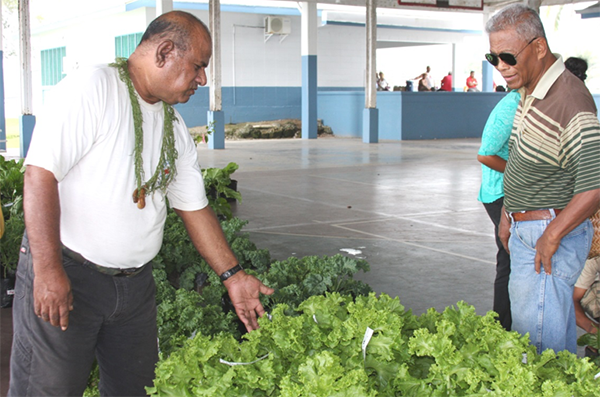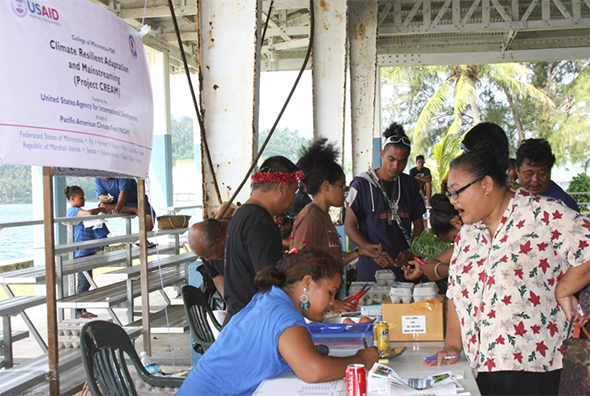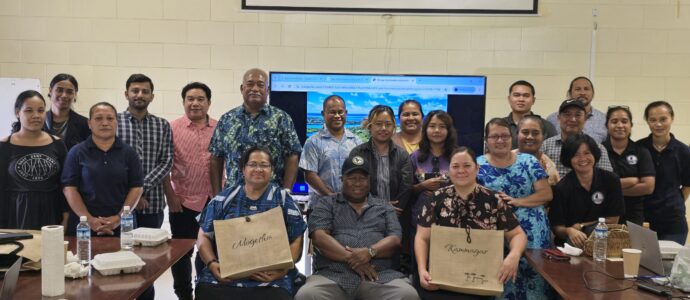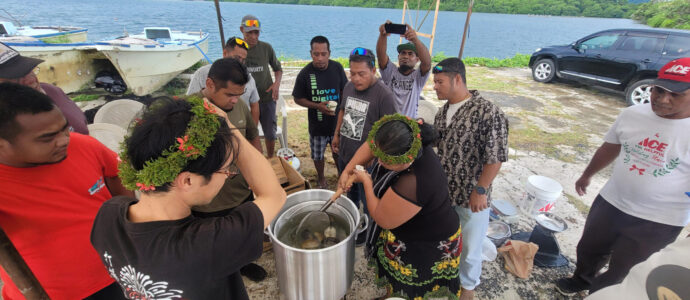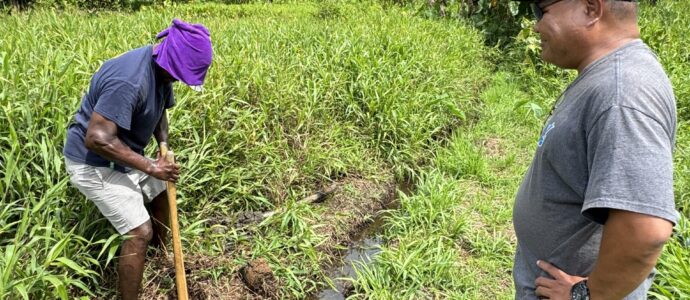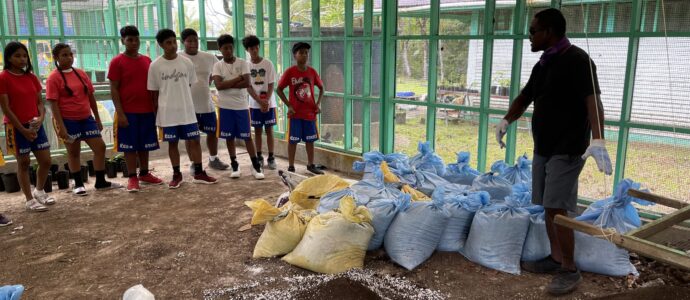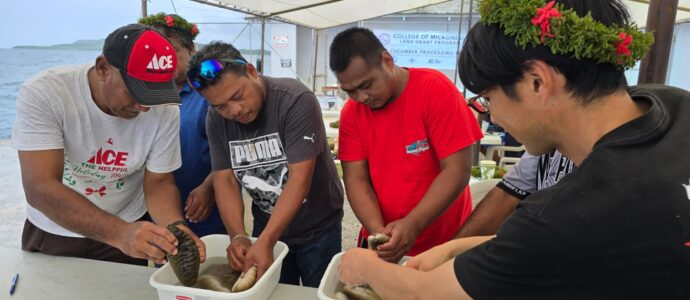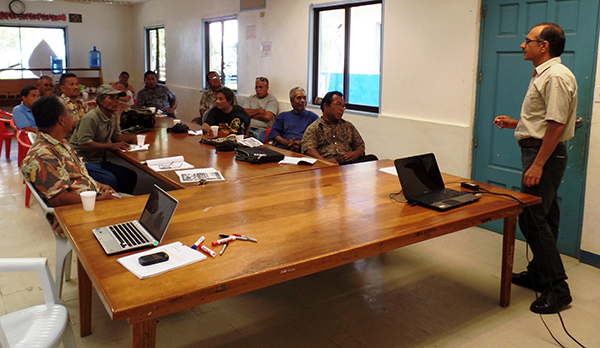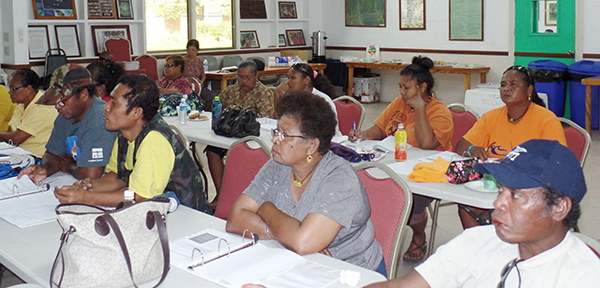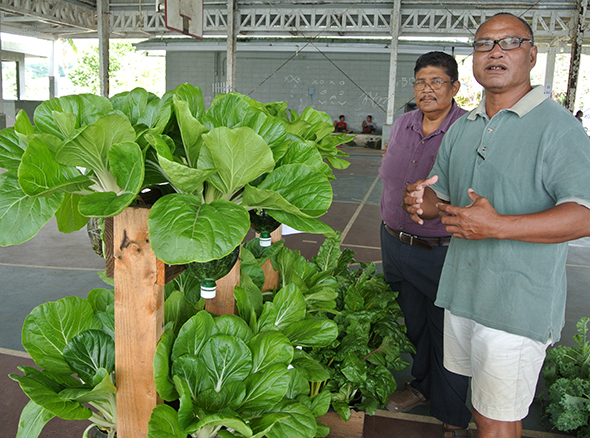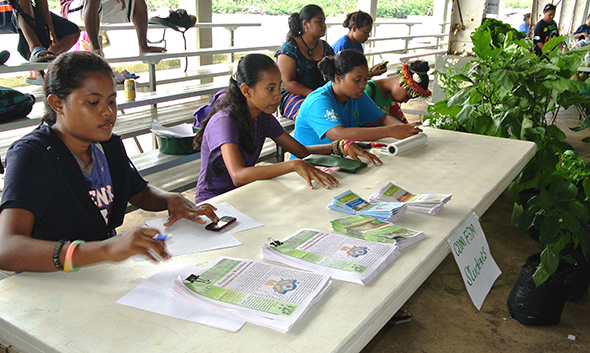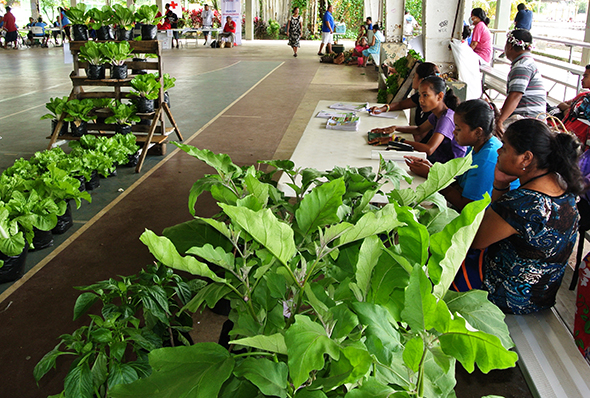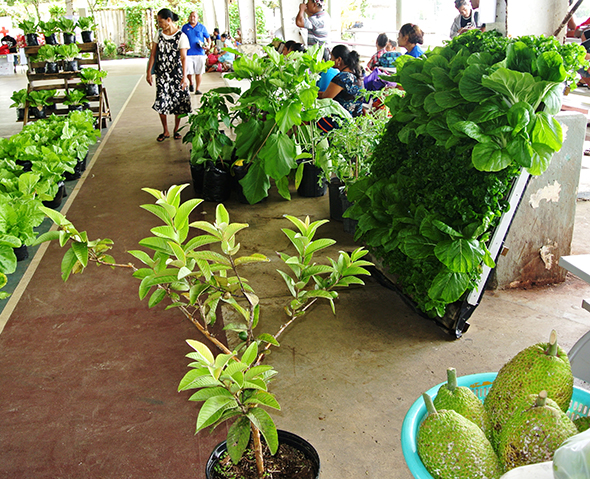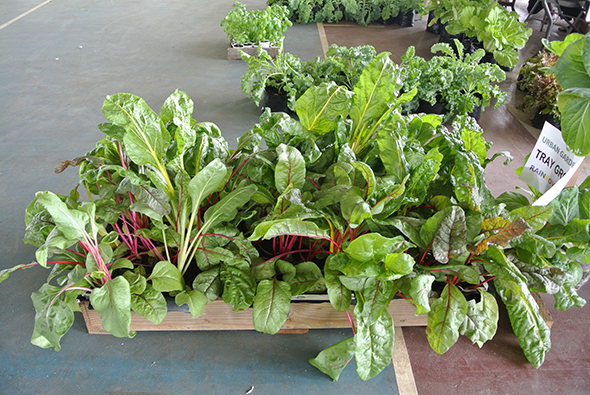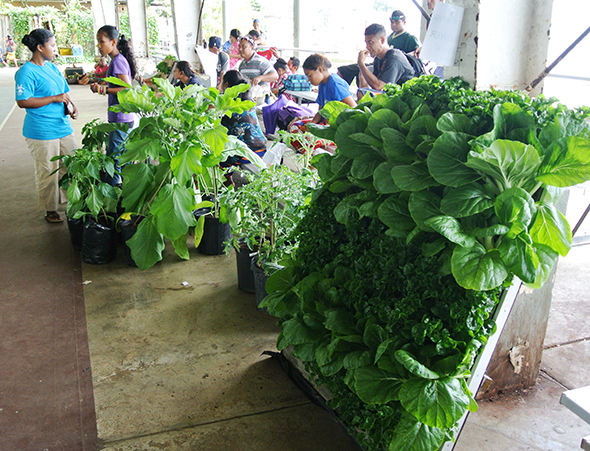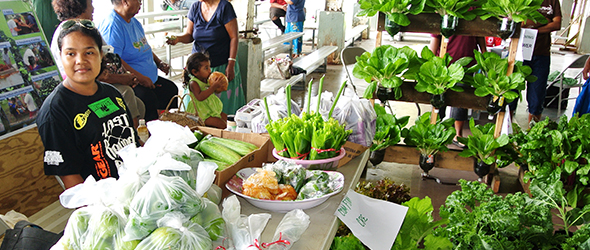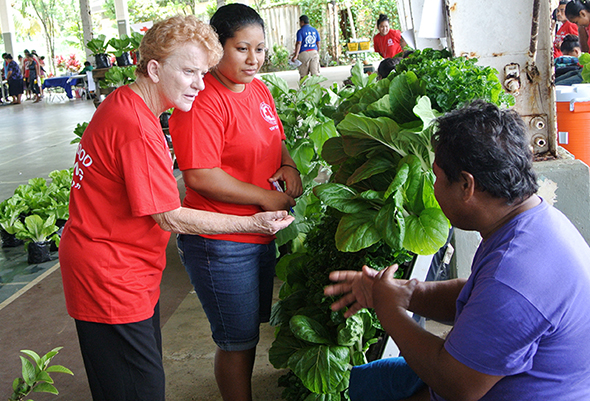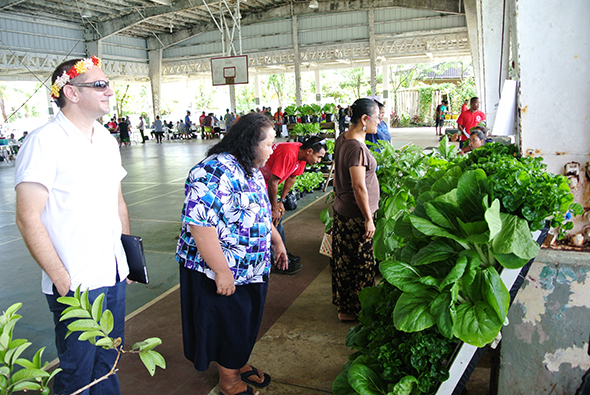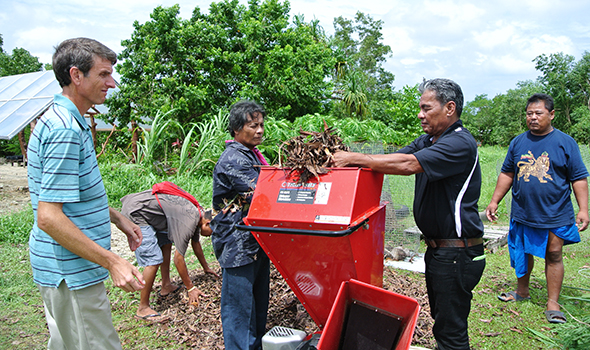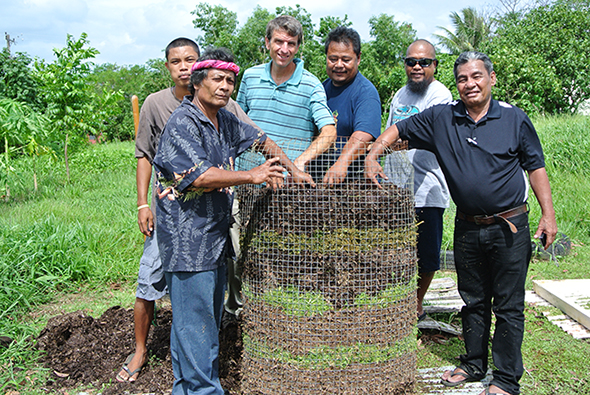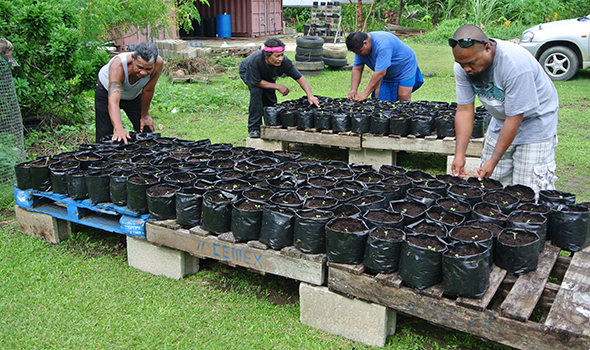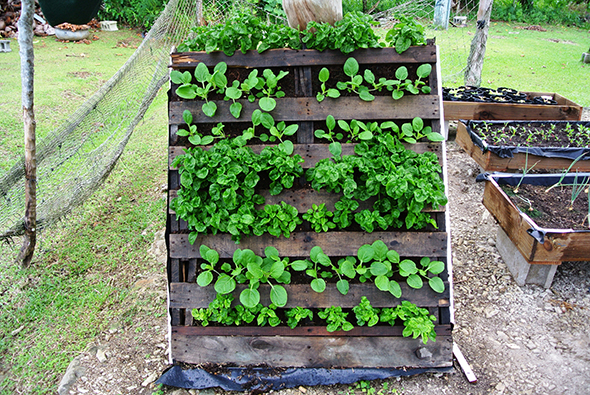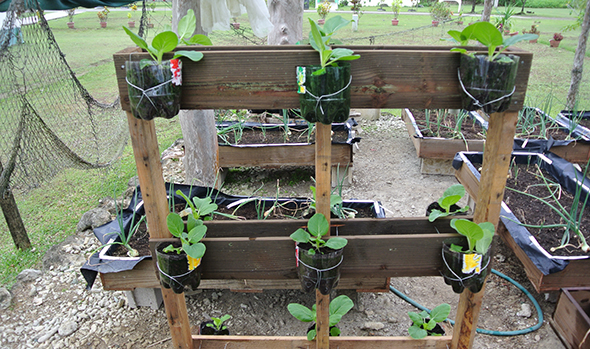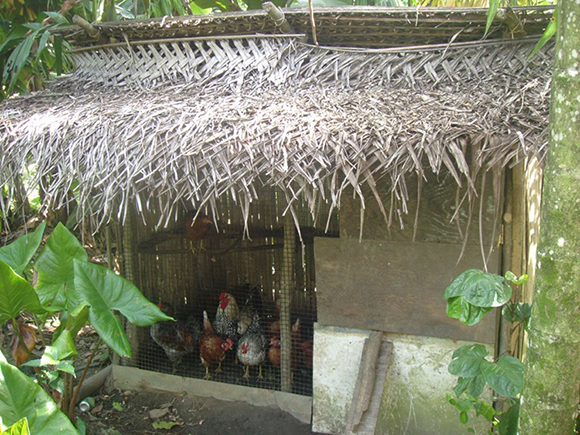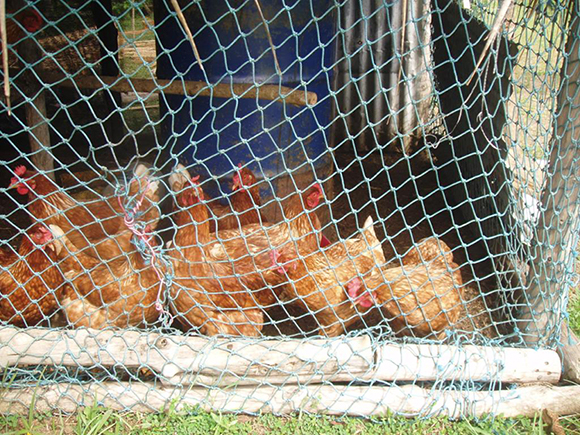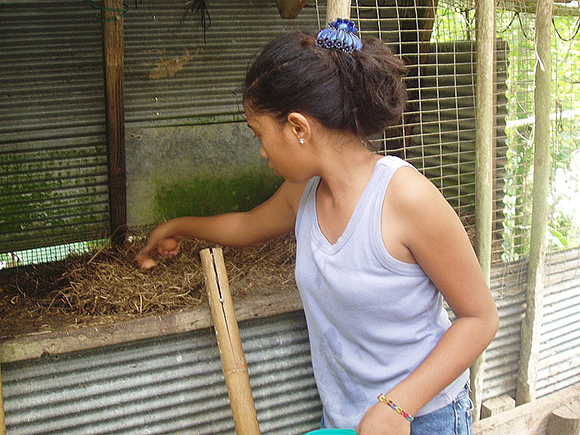YAP, FSM. Dr. Murukesan Krishnapillai, Researcher/Extension Specialist, Yap Agricultural Experiment Station
The Cooperative Research and Extension (CRE) wing of the College of Micronesia-FSM at Yap Campus participated in the 2015 World Food Day celebrations in Colonia, Yap.
World Food Day is celebrated every year around the world on 16 October in honor of the date of the founding of the Food and Agriculture Organization of the United Nations. Main goal of this special day is to raise public awareness about hunger challenges and encourages people worldwide to take action in the fight against hunger. The theme of 2015 World Food Day was “Social protection and agriculture: breaking the cycle of rural poverty,” which aimed to underline the role of social protection plays in reducing chronic food insecurity and poverty by ensuring direct access to food or the means to buy food. Social protection is a viable alternative for stimulating agricultural production and local economic activity. It provides direct income support, with an immediate impact on food security and poverty reduction. Social protection also promotes sustainable food systems, natural resource management and resilient livelihoods.
This year, Yap Interagency Nutrition Education Council organized World Food Day celebrations in Colonia, Yap. As part of the celebrations, Yap CRE participated in the event. Under its NIFA Planned Program ‘Global Food Security and Hunger,’ Yap CRE’s projects and programs are focused on social protection and contribute directly towards the post-2015, new Sustainable Development Goal 1 – End poverty in all its forms everywhere, sub goal 1.3 – Implement nationally appropriate social protection systems and measures for all, including floors, and by 2030 achieve substantial coverage of the poor and the vulnerable. During this event, Yap CRE exhibited various urban vegetable garden models and low-cost food production systems, distributed brochures, fliers and booklets on vegetable gardening and sold a range of vegetables such as Bok Choy, Chinese cabbage, Mesclun, Swiss chard, kale, Kang Kong, spinach, lettuce, tomato, sweet pepper, eggplant and okra raised in our demonstration gardens. Eggs produced locally by our Outreach Project clients were also on display and sale. CRE staff also conducted cooking demonstrations as part of outreach activities under the Expanded Food and Nutrition Education Program. Healthy dishes from local vegetables such as Kang Kong, bird nest fern, Chili pepper leaves, pumpkin tips with local seasoning like coconut oil, Ambarella leaves, basil leaves and taro starch were on display and tasting. The event attracted many people including visitors and we are enthused by the overwhelming response shown by the local community.
More pictures of this event can be viewed at:
https://app.box.com/s/hn07xjpsrr39pd5d9ygzk2iu3p71js6z
